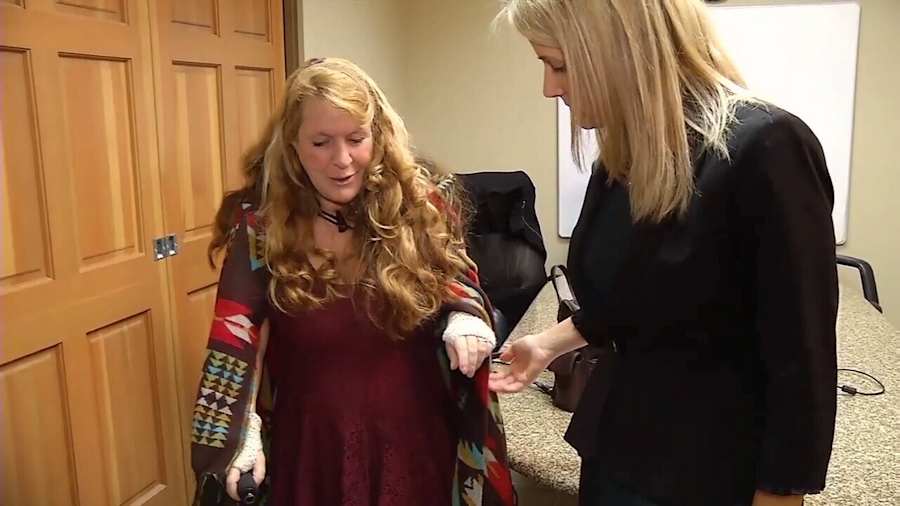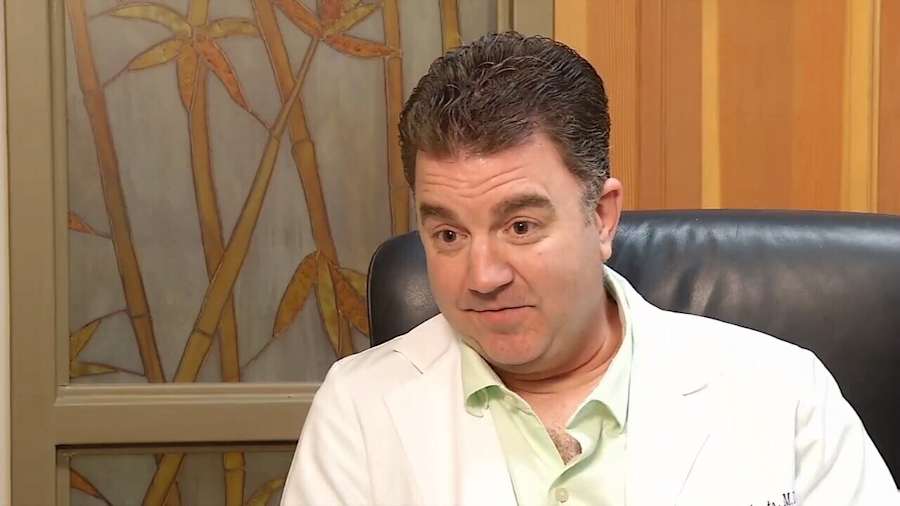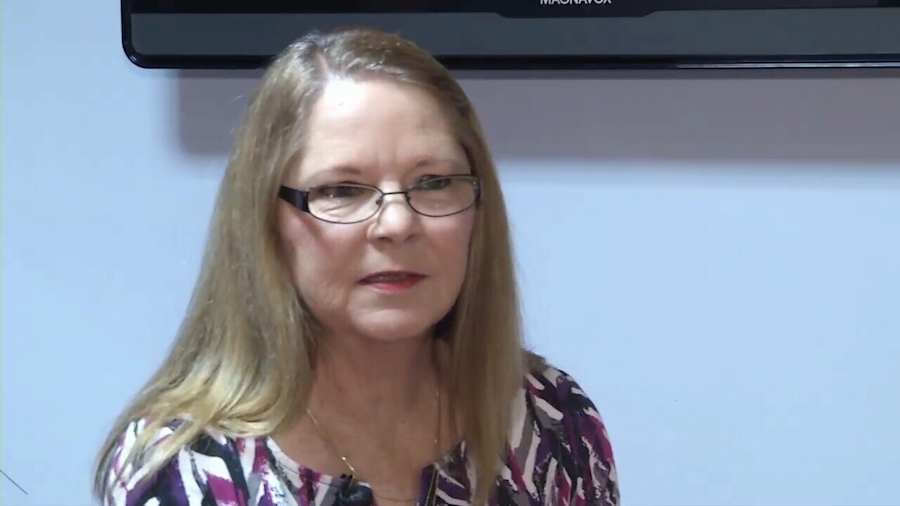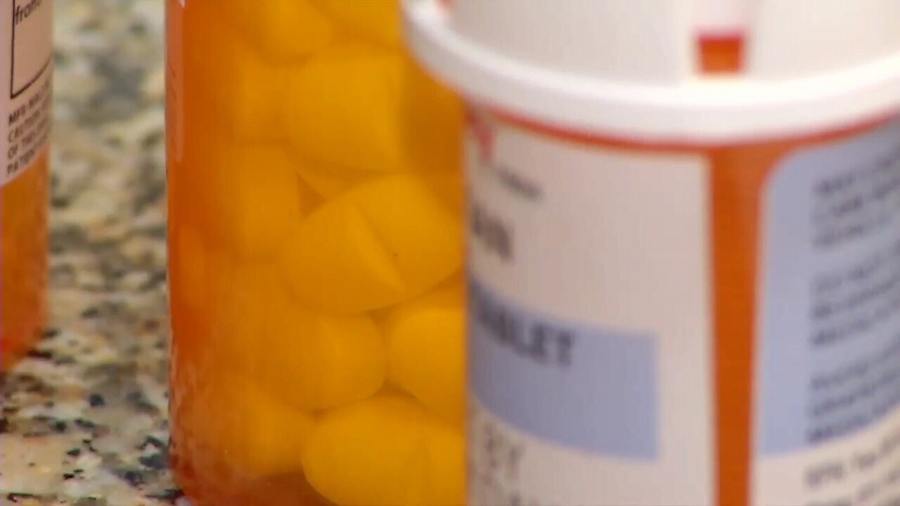JACKSONVILLE, Fla. – Florida's crackdown on pill mills in 2011 has made a dent in prescription painkiller abuse, but the "Pill Mill Bill" is also having unintended consequences. Many people with legitimate pain are having a tough time getting their medications. Whether it was for pain or ADHD, many people tell News4Jax they had to wait weeks or drive all over town to get their prescriptions filled. Not only is it making the patients mad, it's also frustrating the doctors who feel like they've been turned into law enforcement agents.
Jeannie of Jacksonville, w

ho News4Jax is only identifying by her first name, has trouble getting her pain medication. Nine years ago, she was in a terrible car crash that left her with a shattered disc and her life ever since has been miserable. The woman who used to ride horses and ski black diamond trails now mostly stays in her home because of her terrible pain.
"There's times when I'm literally screaming in pain," Jeannie said.
As a result of changes to federal and state laws, in order to get her medications, Jeannie now has to metaphorically jump through hoops. To get her prescription refilled, she is required to see her doctor every 30 days. Before it was every 90 days.
Jeannie also has to submit to testing that's raised the ire of privacy advocates. She's tested to not only make sure she's taking the correct dosage prescribed, but also illegal drugs.
"Marijuana, methamphetamine, the other stuff we sometimes see that goes with use and abuse.," said Dr. Christopher Roberts, an Interventional Pain doctor who treats Jeannie.
Roberts understands why the laws became more strict but says it's dis

concerting now to see doctors, in essence, become an extension of the law.
"I wasn't expecting to be deputized, if you will, by the state to investigate people's behaviors. I was always taught to respect the patient, respect their history and be aware we can have problems but not actively make it a focus of what I do in medicine now," added Roberts.
But the problems getting legitimate pain medication or cough medicine with codeine or even ADHD medicine, don't stop with the doctor's office. Many people are finding a big barrier at their local pharmacy.
"In one day I went to four pharmacists. I left the last one crying. I said I can't do this. I cannot do this," said Sharon, who also has diff

iculty getting her prescriptions filled.
Sharon, who News4Jax is only identifying be her first name, has been on the narcotic Lortab for years, after breaking her neck in 1981. Just last year, when the feds tightened control of the drug, she had a much tougher time getting it. One time Sharon went without it for 2 weeks, in pain and getting withdrawal symptoms, going from pharmacy to pharmacy.
"They make you feel dirty, they make you feel like you're a drug addict, like you're pill shopping. It's awful," Sharon said.
Pharmacist Gilbert Weise believes the Drug Enforcement Agency has scared doctors, drug suppliers, and pharmacies by leveling multi-million dollar fines

.
"I think that's fear of the DEA. F-E-A-R," said Weise.
CVS paid a $22 million fine for filling pain medication prescriptions far in excess of the average pharmacy. Walgreens paid $80 million for its alleged negligence in allowing prescription pain killers to hit the black market.
As a result, Instead of giving pharmacies the narcotics they need to serve all their customers, Drug suppliers are holding back, so they don't raise red flags with the DEA. Out of a pharmacy's total order for the month, Weise believes only about 25 percent of it can be narcotics.
"Really it's a fear we have that if we go over that percentage that it might cause repercussions for us, punishment from the DEA or fines that we have to pay or a full scale DEA raid or investigation for our pharmacy, even if we're filling for 100% valid patients," Weise explained.

Mia Ro, spokeswoman for the DEA told News4Jax, "I understand the DEA has been a convenient excuse for pharmacists to not fill prescriptions but we do not set a quota for what wholesalers or pharmacists can purchase or distribute."
The DEA will be speaking in front of the Florida Board of Pharmacy meeting next month to let them know if they have to order more narcotics because they happen to have more cancer patients, they will work with them.
According to the Attorney General's office, before the law went into effect, 7 people a day died in the state from black market prescription drugs. Now those deaths have dropped nearly 30 percent.
Both Jeannie and Sharon are on board with cutting out prescription pill abuse and deaths, but say the system has got to change for people like them.
"They're trying to get the drugs off the street and that's wonderful, but don't harm the people that need them," said Sharon.




